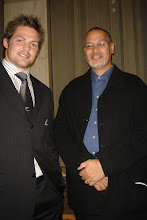 That we have a the treaty is generally well known, although I dare say that while everyone in the country is aware of the treaty few are really familiar either with the treaty itself or why one was needed.
That we have a the treaty is generally well known, although I dare say that while everyone in the country is aware of the treaty few are really familiar either with the treaty itself or why one was needed.It has unfortunately fallen into disrepute, mainly through the machinations of vested interests, both Pakeha and Maori. Some people want the Treaty forgotten using arguments about its relevance and its necessity. Most of these people have little understanding of the historical basis for the 1840 decisions, nor do they understand the language used in the treaty which is the foundation of claims and counterclaims made today. Hopefully over the last week you have gained a greater appreciation of the Treaty debate.
For our purposes we are concerned with why a
The Tory arrived in Whanganui-a-Tara (Port Nicholson) shortly before Hobson arrived in the
For his part Hobson wanted to legitimise his position and to stop both the Company or anyone else for that matter from infringing on British sovereignty in
Besides the Company there were also the possible arrival of the French or Americans. French settlers were rumoured to be headed for Akaroa on Banks peninsula. This may explain his decision to claim the
 From our work in class you will be aware of the various points of view expressed at the meeting on the 5th February. Its seems to have been equally weighted for and against with the matter evenly balanced. Kawiti had argued against it as he distrusted the Missionaries until some important chiefs like Waka Nene spoke in favour of it.
From our work in class you will be aware of the various points of view expressed at the meeting on the 5th February. Its seems to have been equally weighted for and against with the matter evenly balanced. Kawiti had argued against it as he distrusted the Missionaries until some important chiefs like Waka Nene spoke in favour of it.
The language of the treaty is extremely important especially in the Maori version. Kawanatanga means governorship, Rangatiratanga means sovereignty. Consider your textbooks. They belong to the school who has Rangatiratanga over them. You are looking after them, you have Kawanatanga.
Maori claims through the 19th and into the 20th century against the treaty are all based on the second article which assures Maori of their ownership of their lands, fisheries, taonga etc.
The “fourth article” at Pompalliers prompting assured religious freedom, much to the consternation of the CMS/WMS who had hoped for an extension of the State religion status accorded to the Anglican church in
Several Missionaries spoke at the meeting. All extolled the virtues and advantages a treaty would bring Maori. As we mentioned in class the idea of a covenant between the Queen and Maori was presented, reinforced by Maori understanding of the Bible where covenants were sacred agreements made between Man and God. Maori (apart from Kawiti) had few reasons to disbelieve or question the motives of the Missionary(s).
The treaty was then copied and sent to the south. However





No comments:
Post a Comment